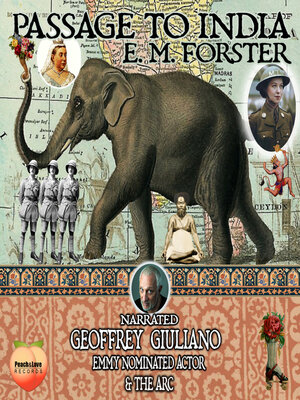
Sign up to save your library
With an OverDrive account, you can save your favorite libraries for at-a-glance information about availability. Find out more about OverDrive accounts.
Find this title in Libby, the library reading app by OverDrive.



Search for a digital library with this title
Title found at these libraries:
| Loading... |
"A Passage to India" is a novel written by E.M. Forster and published in 1924. It explores the complexities of human relationships and the clash of cultures during the British Raj in India. The novel revolves around the experiences of various characters, both British and Indian, in the fictional city of Chandrapore. The main plot follows Dr. Aziz, a young Indian Muslim physician, and his interactions with a British schoolteacher named Adela Quested.
One of the most significant events in the book is the alleged assault of Adela in the Marabar Caves during a trip with Aziz. This incident sparks controversy and leads to a highly publicized trial, which highlights the tensions and prejudices between the British colonizers and the Indian population.
Throughout the novel, Forster delves into themes such as racism, cultural misunderstandings, imperialism, and the struggle for personal and cultural identity. He explores the power dynamics between the British and Indians, examining the impact of colonization on both the colonizers and the colonized.
"A Passage to India" is known for its nuanced portrayal of characters and its exploration of human connection and empathy complexities. Forster raises questions about the limitations of understanding different cultures and the difficulty of bridging the gap between them.
The novel ends on a note of ambiguity, emphasizing the challenges of genuine communication and the lasting effects of colonization. It remains a significant work of literature that continues to be studied and analyzed for its social and political commentary.
One of the most significant events in the book is the alleged assault of Adela in the Marabar Caves during a trip with Aziz. This incident sparks controversy and leads to a highly publicized trial, which highlights the tensions and prejudices between the British colonizers and the Indian population.
Throughout the novel, Forster delves into themes such as racism, cultural misunderstandings, imperialism, and the struggle for personal and cultural identity. He explores the power dynamics between the British and Indians, examining the impact of colonization on both the colonizers and the colonized.
"A Passage to India" is known for its nuanced portrayal of characters and its exploration of human connection and empathy complexities. Forster raises questions about the limitations of understanding different cultures and the difficulty of bridging the gap between them.
The novel ends on a note of ambiguity, emphasizing the challenges of genuine communication and the lasting effects of colonization. It remains a significant work of literature that continues to be studied and analyzed for its social and political commentary.






